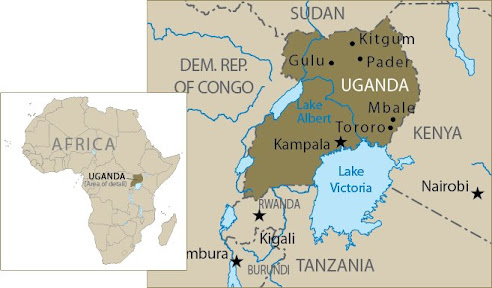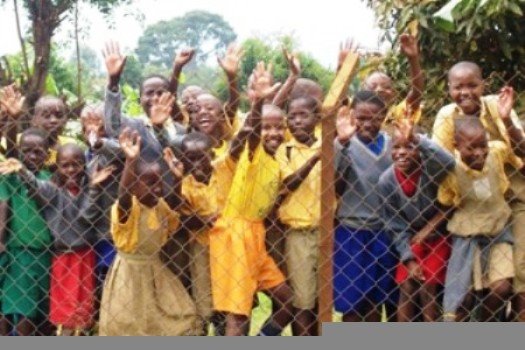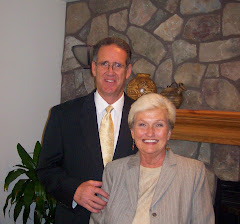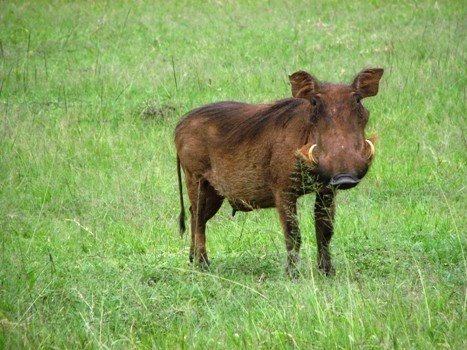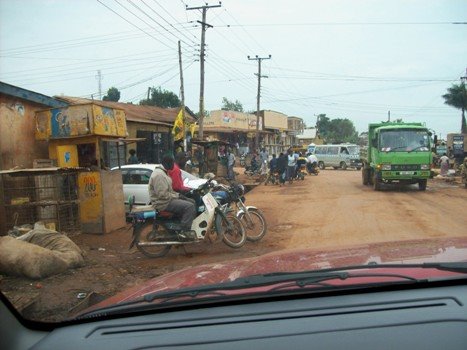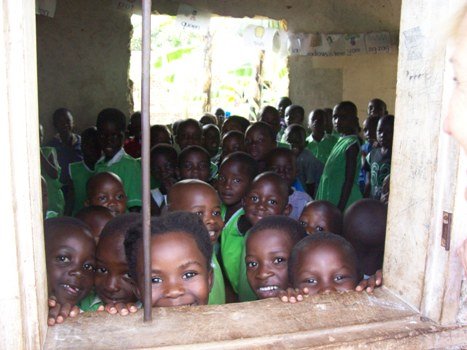The day we left Kampala headed for Northern Uganda with 2,400 hoes, 13,500 lbs. of cow peas and 330 sacks of cassava cuttings, the local paper had this headline:
“Biting hunger has reduced Teso region to ghostland.” Northern Uganda, already suffering from the effects of a prolonged drought was heavily damaged by widespread hailstorms that destroyed crops, collapsed school buildings and huts, injured people and killed livestock. We were contacted by Musa Ecweru, Uganda’s Minister of State for Disaster, Emergency Relief and Refugees, requesting our help. We have worked with him before in the Congolese refugee camps in southern Uganda. He told us that people in Northern Uganda had been reduced to scavenging in the forest for leaves to eat. We contacted the Area office in Johannesburg, South Africa and within a week had approval to proceed and had arranged the supplies for transport. Cow peas are used here because within 3 weeks of planting there is a vine so that some of the leaves can be eaten. Three weeks later there are edible pods, followed by mature peas in another three weeks.
Our project assistant, Ssimbwa Busulwa had all of the needed items located and reserved by the time we got approval for the project.

Here he is with Minister of State Musa Ecweru during our planning session over lunch.

When we got to the villages we found that most of the remaining crops had been destroyed by the hail storms. Some of the fields had been cleared but there were not enough hoes to cultivate and no seeds for planting.


We were grateful for the speed at which the Church can operate where there is an emergency. Most of the other organizations were still in the process of conducting “baseline surveys.” Minister Ecweru called for all humanitarian organizations in Northern Uganda to cancel any seminars or workshops and “get to work helping”. He said, “We should not be holding meetings while people are starving.” The hoes and seed were much needed items. We also provided sacks of cassava cuttings, as cassava produces more crops per acre than any other crop in Uganda.

At each village that we had designated as a distribution point there were nearly 1,000 people anxiously waiting to receive the supplies. Here, Elaine commented about the strong and very calloused hands the women had from a life time of hard work. Minister Ecweru is a very dynamic speaker and tried to lighten the situation by using humor wherever we went. In 2004 he led the army which drove the LRA from this part of Uganda and is greatly loved and respected in the area.

Of course, there was the usual supply of beautiful babies to hold.


This school had been heavily damaged along with a medical clinic and numerous huts. The damage appeared more like a tornado than hail. The roofs had been blown off of many of the buildings and water tanks destroyed.

This building collapsed during school hours, killing one girl and seriously injuring six other students.

The UN loaned us trucks to help deliver the supplies to the four main distribution points and people gathered from the surrounding areas. The people would run through the fields to meet the trucks as they arrived.



We were impressed by the way people helped each other even though they were in a desperate situation themselves. This older lady arrived after all the seed had been given out at this distribution point. The young woman with the baby beside her was from a different village but she divided her seed and gave half to her to plant.

Although this man was very old and feeble, we found him a hoe and seed because he said he could get a young boy to plant his garden in return for borrowing the hoe to plant his own.

We saw many powerful examples of the honesty and integrity of Ugandans even in these dire circumstances. The women would work for an hour picking up every single seed which had been dropped so that they would have more for planting...


Yet, one of the 220 pound bags of seed fell off a truck and lay for two hours on the ground while seed was being handed out under the nearby tree. Although they could have easily done so, no one disturbed or broke open the bag until it was time for it to be distributed.

After everything was distributed and we were returning to town, we noticed that every mango tree we passed had people in it picking fruit. The Tamarind trees had all the leaves stripped off for food as high as you could reach. There were World Food Program trucks coming from town, with flour to meet the immediate need until the crops grow. It was starting to rain and we felt thankful for what the Church had been able to do.
When they ran a story on the evening news about the project, they referred to Art as “The owner of The Church of Jesus Christ of Latter-Day Saints”. We thought that was rather humorous.










